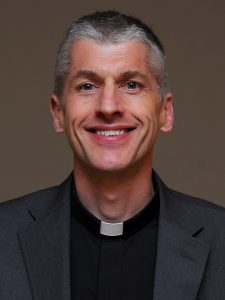 By Pastor Craig Pederson
By Pastor Craig Pederson
In the wake of the momentous events of last week – the Chauvin trial verdict, the killing of Daunte Wright, the death of Walter Mondale, the uptick of COVID-19 cases – I’m still reflecting on the gospel text many of us heard over the weekend about Jesus being the Good Shepherd (John 10:11-18). If there has ever been a time when we’ve needed to listen to the voice of the Good Shepherd, and to be guided and comforted by that voice, it is now.
But I have also been thinking about a counter image – if there is a good shepherd, what does a “bad” shepherd look like? We get some idea of this earlier in John’s 10th chapter: “All who came before me are thieves and bandits; but the sheep did not listen to them. … The thief comes only to steal and kill and destroy” (John 10: 8, 10a).
“In Minnesota, it would be convenient to assign the two former police officers into the “bad cop” category and move on. But that is too simplistic.”
There are voices in our culture, in our politics, and even in our churches that have been working to divide and destroy in order to gain or retain power – both historically and in the present. The racism and injustices against which we fight are examples of voices that seek to lead us astray.
There is another good/bad dichotomy that has been prevalent over the past year, one that will continue to be explored in the weeks and months to come: the notion of good cops and bad cops.
I’m not talking about the “good cop/bad cop” expression used as a strategy in negotiations or as a tactic in sales. I mean literally the good cops who represent the finest in law enforcement through their presence and engagement in our communities, and the bad cops who get out of line and betray their oaths to protect and serve. Bad cops are said to become that way either because they are “bad apples” that don’t reflect the whole bushel basket of cops, or because they are outgrowths of a systemic “rotten tree” that some say describes a troubled institutional police culture.
DEREK CHAUVIN’S TRIAL for the murder of George Floyd, and Kim Potter’s killing of Daunte Wright for which she will likely stand trial, have caused jurors, public officials, and the general public to explore what voices were being heard and what motivations were at work in these tragic events. This same exploration is taking place in Columbus, Ohio, with the killing of Ma-Khia Bryant, in North Carolina with the killing of Andrew Brown, and in several other officer-involved shootings of people of color around the country.
In Minnesota, it would be convenient to assign the two former police officers into the “bad cop” category and move on. But that is too simplistic; it would not take into account the fullness of who they (and we) are as individuals and how they (and we) have been influenced by a culture and systems that are broken.
In an interview on 60 Minutes this weekend, Minnesota Attorney General Keith Ellison described the strategy and approach of his legal team to achieve a guilty verdict for Derek Chauvin. When asked how he felt when he first heard the verdict, Ellison said there was a mix of gratitude, humility, and some satisfaction. Then he said, “I spent 16 years as a criminal defense lawyer, so, I will admit, I felt a little bad for the defendant. I think he deserved to be convicted. But he’s a human being.”
“Then he said, ‘I spent 16 years as a criminal defense lawyer, so, I will admit, I felt a little bad for the defendant. I think he deserved to be convicted. But he’s a human being.’”
Surprised by Ellison’s response, 60 Minutes interviewer Scott Pelley asked him about his apparent compassion for the convicted ex-cop. Ellison said, “I’m not in any way wavering from my responsibility. But I hope we never forget that people who are defendants in our criminal justice system, that they’re human beings. They’re people. I mean, George Floyd was a human being. And so I’m not going to ever forget that everybody in this process is a person.”
When Ellison says “human being” and “person,” I hear “child of God” (and, as a Muslim, Ellison seems to hear this as well). Children of God need to hear the voice of the Good Shepherd, now more than ever. The Good Shepherd names the darkness and does not deny it, but also provides the Light and guides us to it.
As we continue to pursue justice and practice mercy in the weeks and months ahead, we do so with the courage and compassion made real by the resurrected Christ – the Good Shepherd who will not mislead us.
